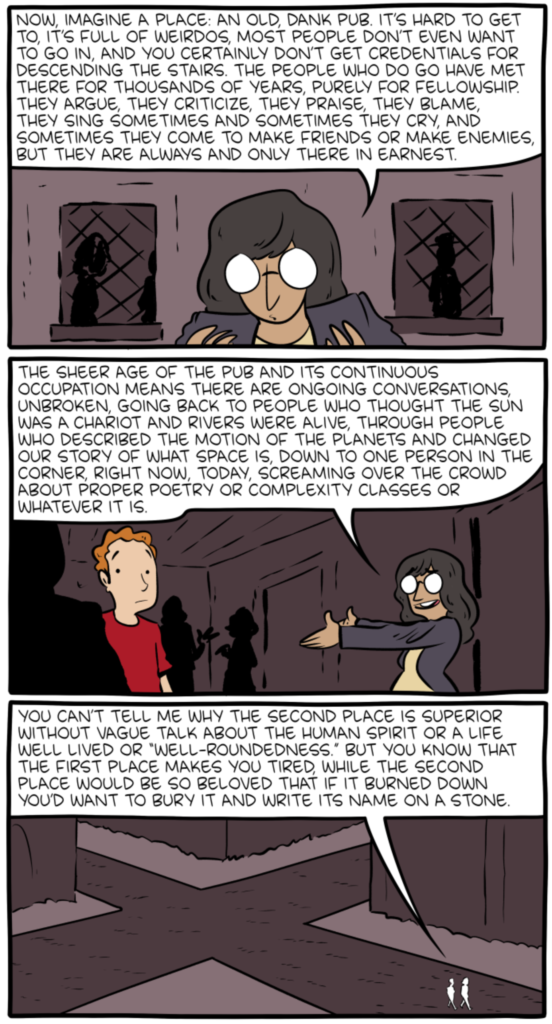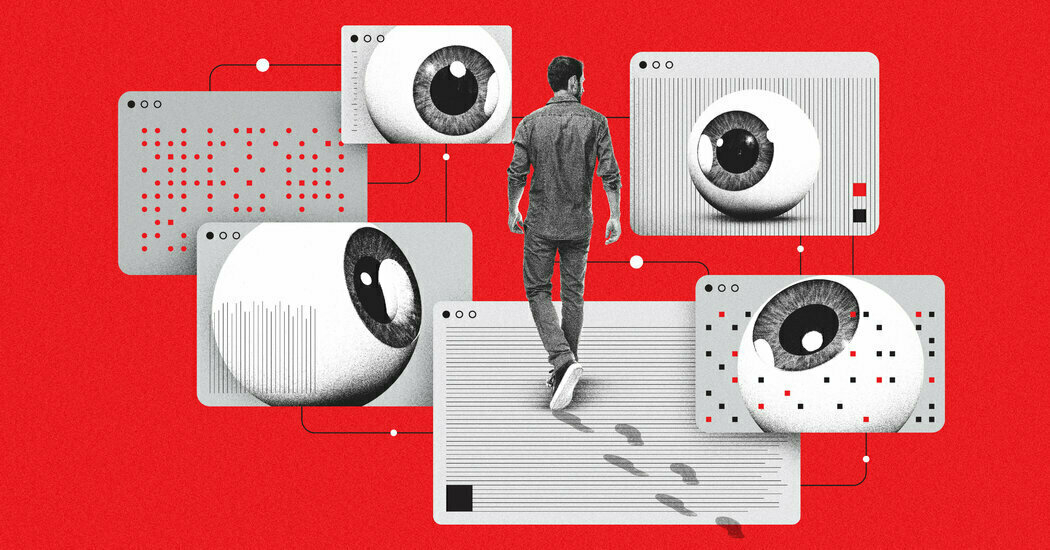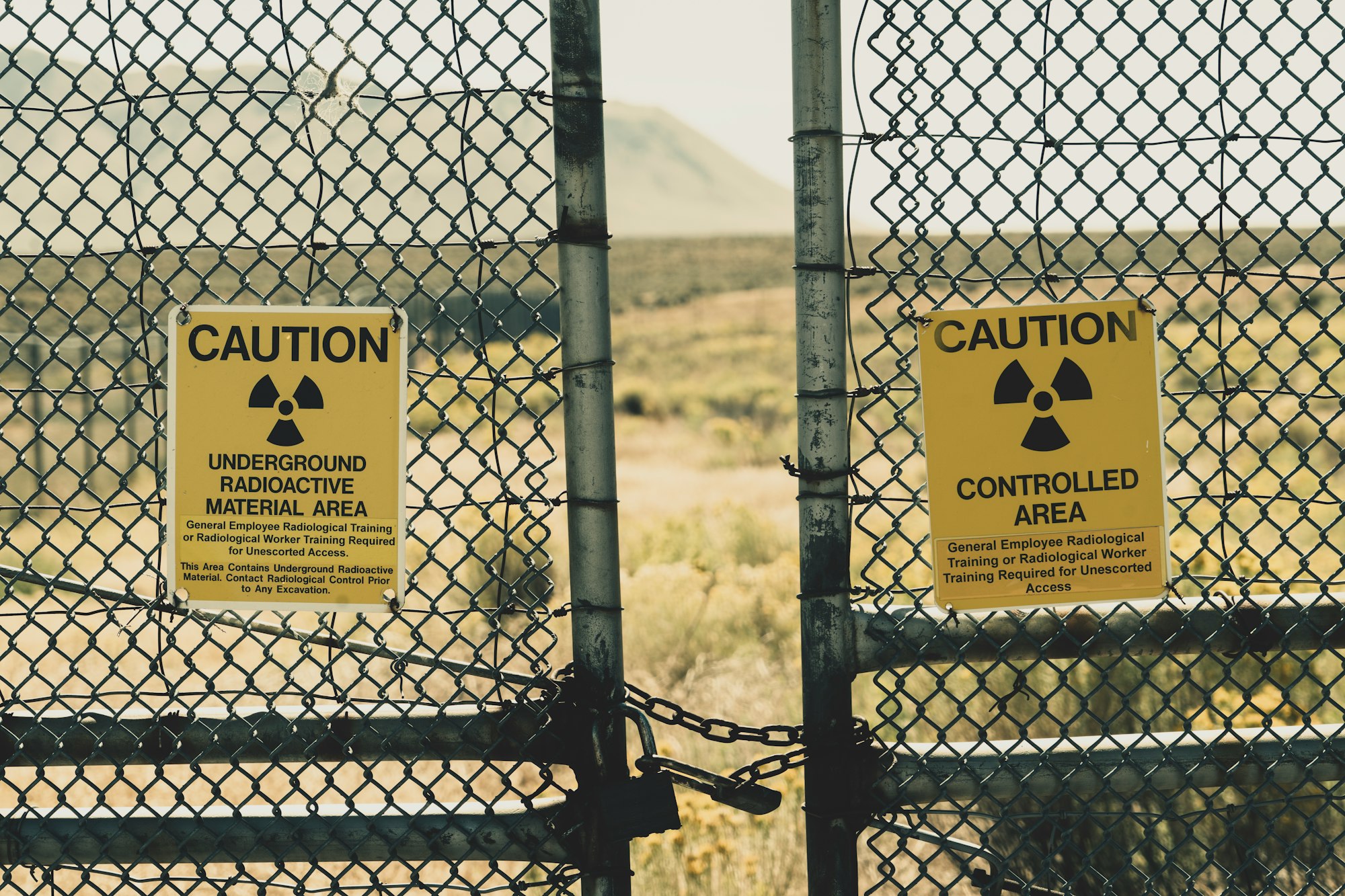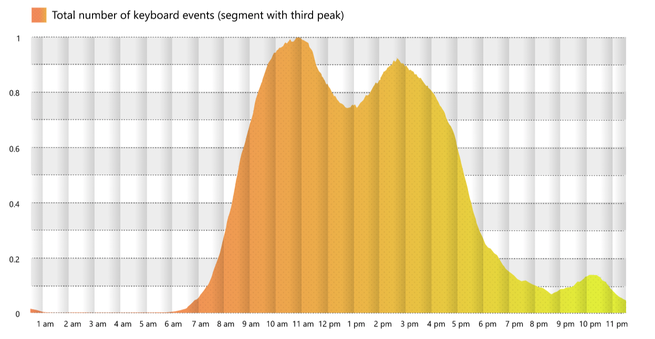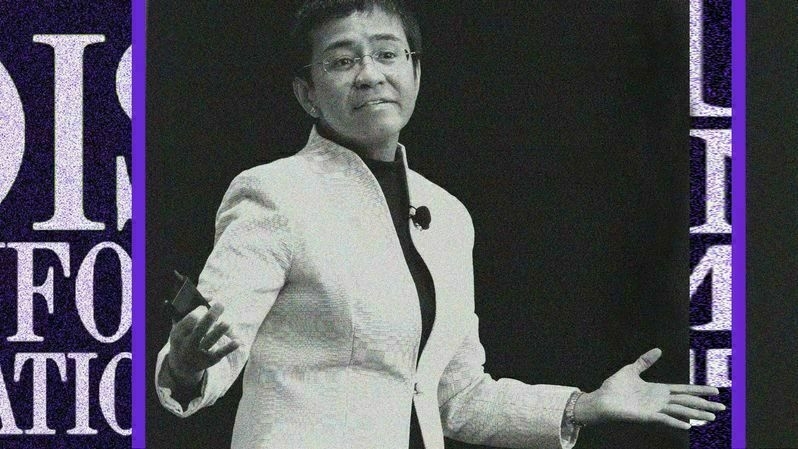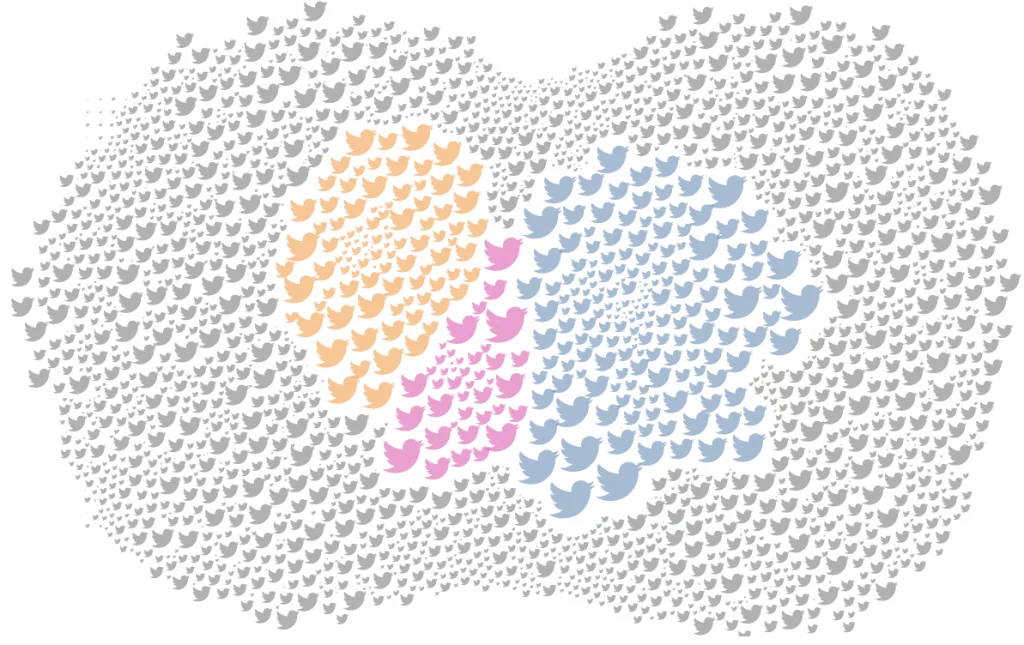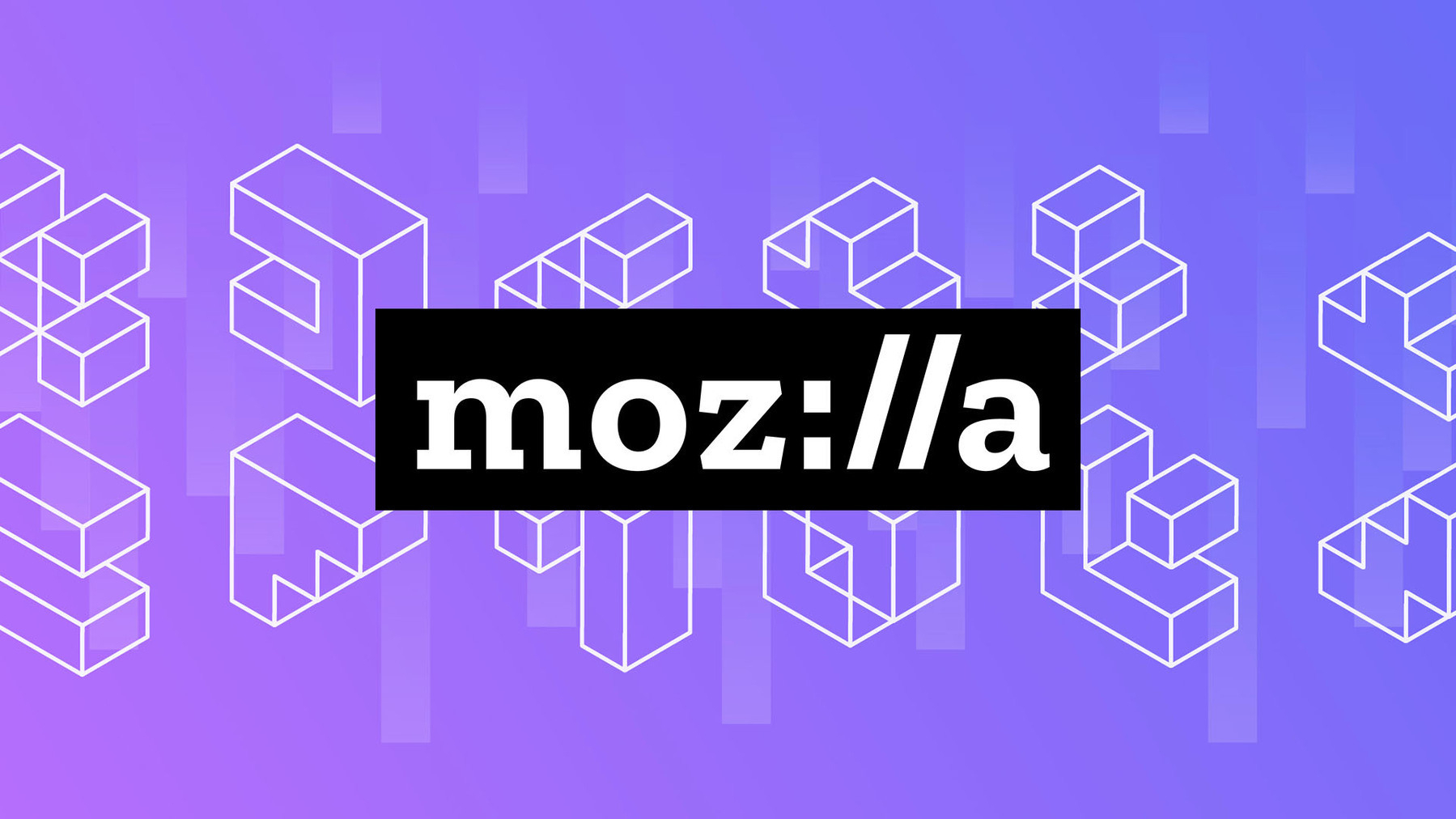2022
The economics of blockchain-based gaming don't add up
Blake Robbins, who used to work on game design at Roblox, has written an in-depth post on why blockchain-based gaming will never take off.
TL;DR: not only is it likely to be a Ponzi scheme, it's just a really bad idea for basic economic reasons.
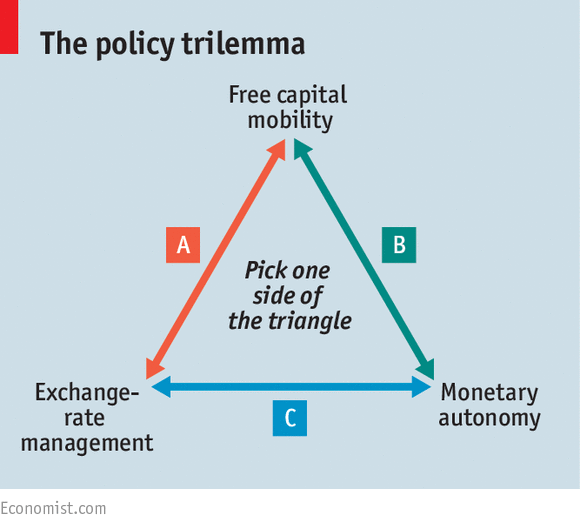
Narratives can be moulded, but unfortunately crypto gaming evangelists will not be able to change basic economics. The fact that the problem with the Mundell-Fleming trilemma and how crypto games fall on the wrong side of them from a pure game design perspective which ultimately prevent large developers from creating AAA games with open economies as well as ruining user experience is totally ignored by VCs who are funnelling absurd amounts of money into these projects makes me question if they actually believe in the narrative they’re pushing, or if they’re simply investing in token pre-sales and planning on dumping on unwitting retail bagholders.
For the record, I’m not a crypto hater or anything... [h]owever, I just don’t see the application of decentralised blockchains in gaming, there isn’t a need. Putting games on the blockchain will just result in really slow servers as everything would constantly have to be verified by a decentralised database. No one gamer has ever said: “I don’t trust Rockstar to store my data correctly which is why I won’t buy GTA V”. Building games for the sole purpose of “play to earn” or “play to own” means that players are no longer playing games for enjoyment, but rather the hope that they can monetise their holdings. Inevitably, this means that the quality of game experience will drop, as developers focus solely on how to turn every single aspect of a game into an NFT which can be traded. Collectible trading should be complementary, like in Roblox or Counter-Strike , it should not be the whole purpose of a game. You might as well scrap the game altogether, and just focus on making NFT collections like Bored Apes or Cryptopunks. Recreating games to have a similiar culture will not work out.
Literally shitposting
I saw this mentioned in passing and thought it was unusual enough to share here. There's a metaphor in there somewhere...

In July 1184 Henry VI, King of Germany (later Holy Roman Emperor), held court at a Hoftag in Erfurt. On the morning of 26 July, the combined weight of the assembled nobles caused the wooden second story floor of the assembly building to collapse and most of them fell through into the latrine cesspit below the ground floor, where about 60 of them drowned in liquid excrement. This event is called Erfurter Latrinensturz (lit. 'Erfurt latrine fall') in several German sources.
Assume that your devices are compromised
I was in Catalonia in 2017 during the independence referendum. The way that people were treated when trying to exercise democratic power I still believe to be shameful.
These days, I run the most secure version of an open operating system on my mobile device that I can. And yet I still need to assume it's been compromised.
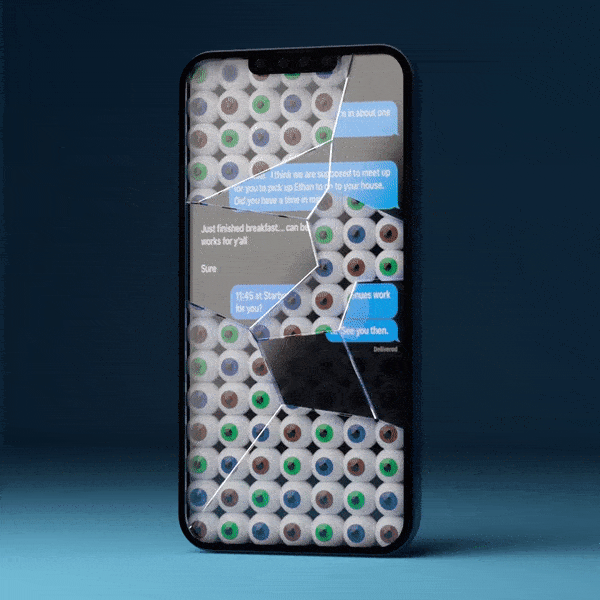
In Catalonia, more than sixty phones—owned by Catalan politicians, lawyers, and activists in Spain and across Europe—have been targeted using Pegasus. This is the largest forensically documented cluster of such attacks and infections on record. Among the victims are three members of the European Parliament, including Solé. Catalan politicians believe that the likely perpetrators of the hacking campaign are Spanish officials, and the Citizen Lab’s analysis suggests that the Spanish government has used Pegasus. A former NSO employee confirmed that the company has an account in Spain. (Government agencies did not respond to requests for comment.) The results of the Citizen Lab’s investigation are being disclosed for the first time in this article. I spoke with more than forty of the targeted individuals, and the conversations revealed an atmosphere of paranoia and mistrust. Solé said, “That kind of surveillance in democratic countries and democratic states—I mean, it’s unbelievable.”
[...]
[T]here is evidence that Pegasus is being used in at least forty-five countries, and it and similar tools have been purchased by law-enforcement agencies in the United States and across Europe. Cristin Flynn Goodwin, a Microsoft executive who has led the company’s efforts to fight spyware, told me, “The big, dirty secret is that governments are buying this stuff—not just authoritarian governments but all types of governments.”
[...]
The Citizen Lab’s researchers concluded that, on July 7, 2020, Pegasus was used to infect a device connected to the network at 10 Downing Street, the office of Boris Johnson, the Prime Minister of the United Kingdom. A government official confirmed to me that the network was compromised, without specifying the spyware used. “When we found the No. 10 case, my jaw dropped,” John Scott-Railton, a senior researcher at the Citizen Lab, recalled. “We suspect this included the exfiltration of data,” Bill Marczak, another senior researcher there, added. The official told me that the National Cyber Security Centre, a branch of British intelligence, tested several phones at Downing Street, including Johnson’s. It was difficult to conduct a thorough search of phones—“It’s a bloody hard job,” the official said—and the agency was unable to locate the infected device. The nature of any data that may have been taken was never determined.
Source: How Democracies Spy On Their Citizens | The New Yorker
What technology means in late capitalism
Anyone familiar with Guy Debord's Society of the Spectacle will appreciate this article by Jonathan Crary, author of the short but impressive 24/7 Capitalism.
Crary's argument is that our current status quo depends on a capital-fuelled extractive mikitary-industriiall complex that cannot be sustained. What comes next can't (isn't likely to look like) just a 'Green New Deal' version of it.
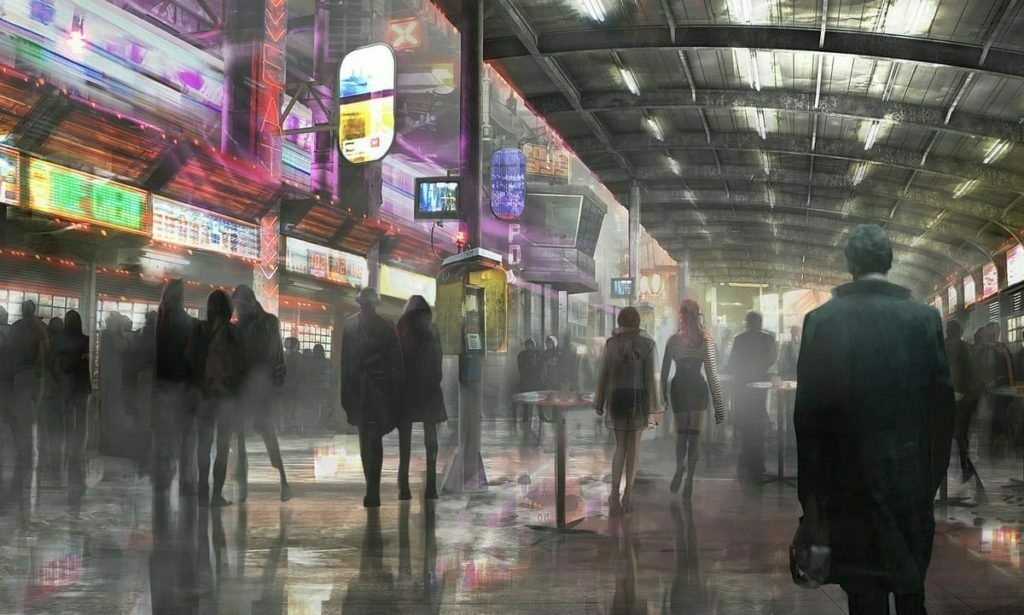
Any possible path to a survivable planet will be far more wrenching than most recognize or will openly admit. A crucial layer of the struggle for an equitable society in the years ahead is the creation of social and personal arrangements that abandon the dominance of the market and money over our lives together. This means rejecting our digital isolation, reclaiming time as lived time, rediscovering collective needs, and resisting mounting levels of barbarism, including the cruelty and hatred that emanate from online. Equally important is the task of humbly reconnecting with what remains of a world filled with other species and forms of life. There are innumerable ways in which this may occur and, although unheralded, groups and communities in all parts of the planet are moving ahead with some of these restorative endeavors.
However, many of those who understand the urgency of transitioning to some form of eco-socialism or no-growth post-capitalism carelessly presume that the internet and its current applications and services will somehow persist and function as usual in the future, alongside efforts for a habitable planet and for more egalitarian social arrangements. There is an anachronistic misconception that the internet could simply “change hands,” as if it were a mid-20th-century telecommunications utility, like Western Union or radio and TV stations, which would be put to different uses in a transformed political and economic situation.But the notion that the internet could function independently of the catastrophic operations of global capitalism is one of the stupefying delusions of this moment. They are structurally interwoven, and the dissolution of capitalism, when it happens, will be the end of a market-driven world shaped by the networked technologies of the present.
Of course, there will be means of communication in a post-capitalist world, as there always have been in every society, but they will bear little resemblance to the financialized and militarized networks in which we are entangled today. The many digital devices and services we use now are made possible through unending exacerbation of economic inequality and the accelerated disfiguring of the earth’s biosphere by resource extraction and needless energy consumption.
Using DICE instead of RA(S)CI
I like what the RACI responsibility assignment matrix tries to do in clarifying roles and responsibilities. In practice, I tend to favour RASCI which adds a 'support' role.
But I also agree with this article by Clay Parker Jones which suggests an alternative.
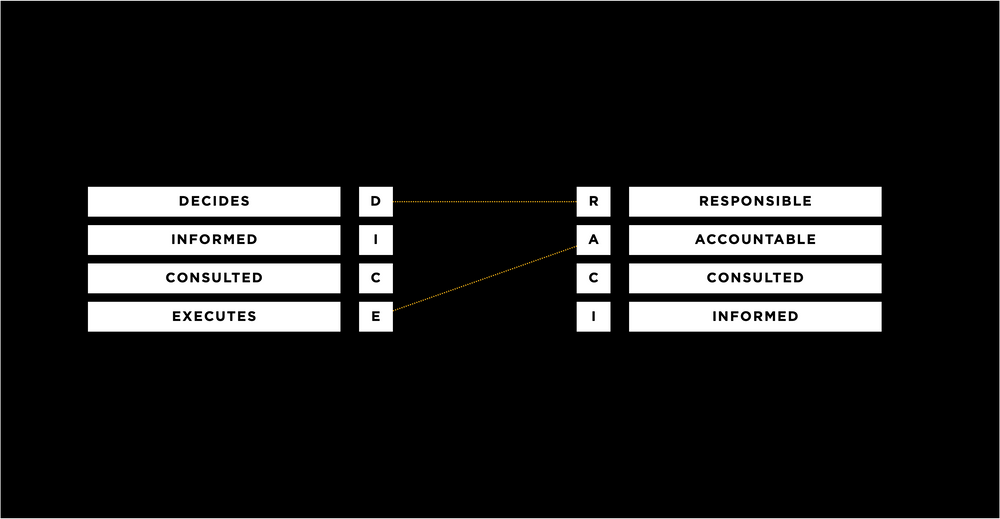
RACI is vague, hard to use, and reinforces the "what the hell is happening here" status quo. DICE is specific, easy to use, and shines a bright light on dysfunction.
The value of a liberal education
I have degrees in Philosophy, History, and Education. As such, I have received what most would call a ‘liberal education’.
These days, people don’t put as much store in a liberal education as they used to, which is a shame. In fact, many people don’t even know what it means. SMBC explains.
SMBC is a daily comic strip about life, philosophy, science, mathematics, and dirty jokes.Source: Liberal Education | Saturday Morning Breakfast Cereal
'Live Forever' mode
My first response to this article was ‘why?’ My second was realising that this in no way is ‘living forever’. Utterly pointless.
The death of [Somnium Space CEO] Sychov’s father served as the inspiration for an idea that he would come to call “Live Forever” mode, a forthcoming feature in Somnium Space that allows people to have their movements and conversations stored as data, then duplicated as an avatar that moves, talks, and sounds just like you—and can continue to do so long after you have died. In Sychov’s dream, people will be able to talk to their dead loved one whenever they wish.Source: Metaverse Company to Offer Immortality Through ‘Live Forever’ Mode | Vice“Literally, if I die—and I have this data collected—people can come or my kids, they can come in, and they can have a conversation with my avatar, with my movements, with my voice,” he told me. “You will meet the person. And you would maybe for the first 10 minutes while talking to that person, you would not know that it’s actually AI. That’s the goal.”
[…]
But even with all the ethical preparation and experience the company can muster, there will be inevitable and justifiable ethical questions about allowing a version of a self to continue on in perpetuity. What if, for example, the children of a deceased Somnium Space user found it painful to know he was continuing on in some form in their metaverse?
The rise of first-party online tracking
In a startling example of the Matthew effect of accumulated advantage, the incumbent advertising giants are actually being strengthened by legislation aimed to curb their influence. Because, of course.
Source: How You’re Still Being Tracked on the Internet | The New York TimesFor years, digital businesses relied on what is known as “third party” tracking. Companies such as Facebook and Google deployed technology to trail people everywhere they went online. If someone scrolled through Instagram and then browsed an online shoe store, marketers could use that information to target footwear ads to that person and reap a sale.
[...]Now tracking has shifted to what is known as “first party” tracking. With this method, people are not being trailed from app to app or site to site. But companies are still gathering information on what people are doing on their specific site or app, with users’ consent. This kind of tracking, which companies have practiced for years, is growing.
[...]The rise of this tracking has implications for digital advertising, which has depended on user data to know where to aim promotions. It tilts the playing field toward large digital ecosystems such as Google, Snap, TikTok, Amazon and Pinterest, which have millions of their own users and have amassed information on them. Smaller brands have to turn to those platforms if they want to advertise to find new customers.
It's time to accept that centralised social media won't change
A great blog post by Chris Trottier about actually doing something about the problems with centralised social media, by refusing to be a part of it any more.
As an aside, once you see the problem with capitalism mediating every human relationship and interest, you can’t un-see it. For example, I’m extremely hostile to advertising. I really can’t stand it these days.
Centralized social media won't change. No regulatory bodies are coming to the rescue. If you hang around Twitter or Facebook long enough, no benevolent CEO will sprinkle magic pixie dust to make it better.Source: What should we do about toxic social media? | PeerverseAcceptance is no small thing. If you’ve spent years on a social network, investing in relationships, it’s hard to accept that all that effort was a waste. I’m not talking about the people you build friendships with, but the companies and services that connect you. Twitter and Facebook are the nuclear ooze of the Internet, and nothing’s going to make them better.
It’s time to let go. Toxic social media doesn’t care about you, it just wants to exploit you. To them, you’re inventory, a blip in a database.
[…]
Getting rid of toxic social media is about building a future without it. There’s thousands of developers working on an open web, all who are dedicated to building a better Internet. Still, if we want those walled gardens to be dismantled, we must let developers know it’s worth while to code an alternative.
Thus, it's time to accept centralized social media for what it is: it is toxic and won't change. Once you accept this, vote with your feet. Then vote with your wallet.
The triple-peak work day is a worrying trend
When I first stepped into the world of consulting, I spent around 18 months working with a large organisation. The person I reported to in the organisation did all of his real work in the evenings, because his 9-5 day was completely full of meetings.
Talking in meetings isn’t work. I’ve never thought so, and never will.
Last week, Microsoft published a study that offers an eerie reflection of my working life. Traditionally, the researchers said, white-collar workers—or “knowledge workers,” in the modern parlance—have had two productivity peaks in their workday: just before lunch and just after lunch. But since the pandemic, a third and smaller bump of work has emerged in the late evening. Microsoft’s researchers refer to this phenomenon as the “triple peak day.”Source: The Rise of the 9 p.m. Work Hour | The Atlantic[…]
Several underlying phenomena are pushing up this third mountain of work. One is the flexibility of at-home work. For example, parents of young kids might interrupt their workday or cut it off early for school pickup, dinnertime, bedtime, and other child care. This leaves a rump of work that they finish up later. Other workers are night owls who get their second wind—or even their primary gust of creativity—just before bed.
[...]Something else is pushing work into our evenings: White-collar work has become a bonanza of meetings. In the first months of the pandemic, Microsoft saw online meetings soar as offices shut down. By the end of 2020, the number of meetings had doubled. In 2021, it just kept growing. This year it’s hit an all-time high.
My highlights from 'Drive Your Plow Over the Bones of the Dead'
This morning, I finished reading Drive Your Plow Over the Bones of the Dead, the translated name of Olga Tokarczuk’s 2009 novel, published a decade later in English.
I thought I’d share my five of the sections I highlighted, because it’s one of those books that, despite being a work of fiction, also has sections which describe well the human condition.
(I’ll also note that the book has made me more militantly vegetarian, which I didn’t see coming!)
It is at Dusk that the most interesting things occur, for that is when simple differences fade away. I could live in everlasting Dusk. (p.43)
When you walk past a shop window where large red chunks of butchered bodies are hanging on display, do you stop to wonder what it really is? You never think twice about it, do you? Or when you order a kebab or a chop – what are you actually getting? There’s nothing shocking about it. Crime has come to be regarded as a normal, everyday activity. Everyone commits it. That’s just how the world would look if concentration camps became the norm. Nobody would see anything wrong with them.’ (p.98)
For people of my age, the places that they truly loved and to which they once belonged are no longer there. The places of their childhood and youth have ceased to exist, the villages where they went on holiday, the parks with uncomfortable benches where their first loves blossomed, the cities, cafés and houses of their past. And if their outer form has been preserved, it’s all the more painful, like a shell with nothing inside it any more. I have nowhere to return to. It’s like a state of imprisonment. The walls of the cell are the horizon of what I can see. Beyond them exists a world that’s alien to me and doesn’t belong to me. (p.146)
The psyche is our defence system – it makes sure we’ll never understand what’s going on around us. Its main task is to filter information, even though the capabilities of our brains are enormous. For it would be impossible to carry the weight of this knowledge. Because every tiny particle of the world is made of suffering. (p.197)
Newspapers rely on keeping us in a constant state of anxiety, on diverting our emotions away from the things that really matter to us. Why should I yield to their power and let them tell me what to think? (p.235)Source: Drive Your Plow Over the Bones of the Dead | Wikipedia
Mainstream social media is a behaviour-modification system
A couple of years ago I would have said that this analogy of an atom bomb being exploded over our information ecosystem is a bit extreme. Not now.
I’ve said this over and over, that, really, this is like when 140,000 people died instantly in Hiroshima and Nagasaki. The same thing has happened in our information ecosystem, but it is silent and it is insidious. This is what I said in the Nobel lecture: An atom bomb has exploded in our information ecosystem. And here’s the reason why. I peg it to when journalists lost the gatekeeping powers. I wish we still had the gatekeeping powers, but we don’t.Source: Maria Ressa: How Disinformation Manipulates Elections | The AtlanticSo what happened? Content creation was separated from distribution, and then the distribution had completely new rules that no one knew about. We experienced it in motion. And by 2018, MIT writes a paper that says that lies laced with anger and hate spread faster and further than facts. This is my 36th year as a journalist. I spent that entire time learning how to tell stories that will make you care. But when we’re up against lies, we just can’t win, because facts are really boring. Hard to capture your amygdala the way lies do.
[...]Today we live in a behavior-modification system. The tech platforms that now distribute the news are actually biased against facts, and they’re biased against journalists. E. O. Wilson, who passed away in December, studied emergent behavior in ants. So think about emergent behavior in humans. He said the greatest crisis we face is our Paleolithic emotions, our medieval institutions, and our godlike technology. What travels faster and further? Hate. Anger. Conspiracy theories. Do you wonder why we have no shared space? I say this over and over. Without facts, you can’t have truth. Without truth, you can’t have trust. Without these, we have no shared space and democracy is a dream.
Certain surroundings seem to dispel enchantment, and others encourage it
I really liked this article by Simon Sarris about what we grasp for versus what we get in domestic settings. I’m definitely receptive to the emotional (and even spiritual) aspects of our build environment at the moment, for some reason.
Handcrafted objects, textured colors, unpainted and unpolished surfaces (my walls show their raw plaster), natural materials, sunlight and shadow—all of these are signs of life. Life accepts the imperfect and the changing. The domestic need not be flamboyant—though sometimes it is magnificent to be so—after all my kitchen and Laquy’s are far from neon. But no kitchen or home should look lifeless. The design cues of the modern home are grasping at a kind of modernist perfectionism, and become flat because all life is removed in the process. Professional atmospheres (restaurant kitchens, warehouses, operating rooms) are antiseptic, often they need to be, so they simply banish life.Source: Patina and Intimacy | Simon Sarris[…]
Intimacy is not clutter, but the proper demarcation of space. To lure back enchantment, we must learn to create the nook, to appreciate the wilder garden, to consider the power of shadows and small spaces, to welcome living materials over insensate ones. There is no formula that can easily arrive at intimacy, only a sensitivity to context that can be cultivated. If we look beyond the economic and utilitarian world, we will find a secret one waiting for us.
Are we in a post-album era for music?
One of the downsides of getting older is that things you took to be sacred all of a sudden seem to be obsolete. For example, music albums, which have always been a part of my life, seem to now be referred to in the past tense?
There’s a whole Wikipedia article on the ‘album era’ so… it must be true.
The album era was a period in English-language popular music from the mid-1960s to the mid-2000s in which the album was the dominant form of recorded music expression and consumption. It was primarily driven by three successive music recording formats: the 33⅓ rpm long-playing record (LP), the audiocassette, and the compact disc. Rock musicians from the US and the UK were often at the forefront of the era, which is sometimes called the album-rock era in reference to their sphere of influence and activity. The term "album era" is also used to refer to the marketing and aesthetic period surrounding a recording artist's album release.Source: Album era | Wikipedia
Warren Ellis' work day routine
I think the realisation that it’s impossible to ‘keep up’ (whatever that means) with even a subset of an industry these days may be the key to enlightenment.
One of the great things for me about Thought Shrapnel is that I can bookmark things I’d potentially go back and read. Then, if I do get the chance, I can share them here. It sounds like Ellis is doing something similar with his site.
I was telling someone the other day: I have become the old man who reads the papers in the morning and then watches the news analysis show on tv at night. The phone is now “the papers.”Source: Morning Routine and Work Day, Spring 2022 | WARREN ELLIS LTD[…]
I think I have only about eighty sites in my RSS reader these days, which generally generate some 150 new posts to read through. I should post an updated RSS list so I can see for myself.
My inputs used to be twenty times that, and constant from when I woke up to when I finally slept. That thing when you wake up with a shudder and reach for the phone because you’re behind the moment. But I suspect it took a pandemic and serial lockdowns for me to understand that, even when I was feeling good, it was like a motion detector alarm was going off in my head every second for eighteen hours a day. And you get so trained to it that when the alarms drop to just once every sixty seconds, you go looking for more input to bring the rate back up. I’ve been working hard to get past that
Image: Jon Tyson
Get off Twitter if you want to see your friends' posts
Tyler Freeman wrote a script to analyse the tweets he’s shown in his algorithmic Twitter timeline. 90% of his friends (i.e. the people he chose to follow) never made it to the main feed.
The diagram below shows the 90% in grey, withthe people he follows in orange, strangers are in blue, and ads are pink. This is what happens when you have software with shareholders.
I am following over 2,000 people, so to only see tweets from 10 percent of them is disconcerting; 90 percent of the people I intentionally follow, and want to hear from, are being ignored/hidden from me. When we dig deeper, it gets even worse.Source: Does Twitter’s Algorithm Hate Your Friends? | Nightingale[…]
The way I see it, the centralized path via government regulation is a short-term fix which may be necessary given the amount of power our current societal structures allot to social media corporations, but the long-term fix is to put the power into the hands of each user instead—especially considering that centralized power structures are how we got into this mess in the first place. I’m eager to see what this new world of decentralization will bring us, and how it could afford us more agency in how we donate our attention and how we manage our privacy.
Virtual Photographer Of The Year awards
I love Red Dead Redemption 2, and it’s great that the stunning vistas and scenery in the game is recognised.
During London Games Festival, a 'Red Dead Redemption 2' screenshot won a competition promoting the art of virtual photography.Source: 'Red Dead Redemption 2' screenshot wins Virtual Photographer Of The Year
The future of the web, according to Mozilla
There’s nothing particularly wrong with this document. It’s just not very exciting. Maybe that’s OK.
Mozilla's mission is to ensure that the Internet is a global public resource, open and accessible to all. We believe in an Internet that puts people first, where individuals can shape their own experience and are empowered, safe, and independent.Source: Mozilla’s vision for the evolution of the WebThe Internet itself is low-level infrastructure — a connective backbone upon which other things are built. It’s essential that this backbone remains healthy, but it’s also not enough. People don’t experience the Internet directly. Rather, they experience it through the technology, products, and ecosystems built on top of it. The most important such system is the Web, which is by far the largest open communication system ever built.
This document describes our vision for the Web and how we intend to pursue that vision. We don’t have all the answers today, and we expect this vision to evolve over time as we identify new challenges and opportunities. We welcome collaboration — both in realizing this vision, and in expanding it in service of our mission.
Historic aerial photos of England
It's annoying they can't be downloaded, but fun to see historic aerial photos of my home town!
You can explore over 400,000 digitised photos taken from our aerial photo collections of over 6 million photographs preserved in the Historic England Archive.Source: Aerial Photo Explorer – Over 400,000 aerial photos in Historic England's digitised collections | Historic England
How to be a darknet drug lord
Wow, who knew how difficult it was to be a criminal? Found via HN.
You're an aspiring drug kingpin. Go out and pay cash for another computer. It doesn't have to be the best or most expensive, but it needs to be able to run Linux. For additional safety, don't lord over your new onion empire from your mother's basement, or any location normally associated with you. Leave your phone behind when you head out to manage your enterprise so you aren't tracked by cell towers. Last but not least for this paragraph, don't talk about the same subjects across identities and take counter-measures to alter your writing style.Source: So, you want to be a darknet drug lord… | nachash[…]
Disinformation is critical to your continued freedom. Give barium meat tests to your contacts liberally. It doesn’t matter if they realize they’re being tested. Make sure that if you’re caught making small talk, you inject false details about yourself and your life. You don’t want to be like Ernest Lehmitz, a German spy during World War II who sent otherwise boring letters about himself containing hidden writing about ship movements. He got caught because the non-secret portion of his letters gave up various minor personal details the FBI correlated and used to find him after intercepting just 12 letters. Spreading disinformation about yourself takes time, but after a while the tapestry of deceptions will practically weave itself.
[…]
Take-away: If you rely only on tor to protect yourself, you’re going to get owned and people like me are going to laugh at you. Remember that someone out there is always watching, and know when to walk away. Do try to stay safe while breaking the law. In the words of Sam Spade, “Success to crime!"
